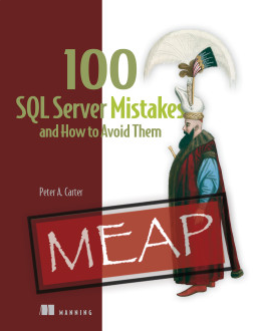No, I don’t have a way to license a SQL Server instance for your application for free. Microsoft still charges for production workloads. However, there are several ways that you can do development or testing for free, or at a greatly reduced cost. Bob Ward spent a bit of time researching options and he’s written a post that outlines a number of your options. It’s very comprehensive and I know a lot of us are grateful to Bob for summarizing our options.
As I work with developers in organizations, there are often questions about the licensing for dev editions. This comes up more with Oracle than other platforms, but SQL Server does get asked about. We made a decision to support SQL Server Developer Edition in Redgate Clone, which is in line with what Bob’s post above says: this edition is for developers (and it’s free). There is one caveat here, which I never knew. The licensing guide says you cannot build test data and move that into production. I’m assuming this doesn’t mean you can’t create a list of US states, countries in the world, or statuses. I think this means something more substantial, but if anyone knows, let me know.
One question I get asked a lot is about how do you develop locally if your production target is Azure SQL Database? The best option is a container, as outlined in this MS Learn article. It’s not completely the same, or necessarily as up-to-date, but it’s close and likely good enough for most of us. If you really want an Azure SQL DB instance for dev/test, it’s not going to be free. Unless you can live within the monthly Azure credits, which are pretty low for this purpose. If you are a Visual Studio subscriber, you can get some discounts, however, and I didn’t know this, you can’t use Azure credits with the VS benefit.
There is also a “free offer” for Azure SQL database. This is fairly limited, but you do get free compute and 32GB of data for the lifetime of your subscription. If you work with small development databases, and you aren’t querying like crazy, that might work well for you. It’s also a great way for students or job-seekers to get some experience with the platform at a low (or no) cost. You can even try Managed Instance for free for 12 months.
The cloud isn’t for everyone, every organization, or even every application, but it does work well in some situations. Whether that fits you or not can be tricky to determine, but you certainly should be working in the cloud in a dev/test manner to help inform the decision. I would hope that most of you have dev/test databases in place for on-premises/IaaS systems as well. I don’t run into too many people developing on a production instance, but I do see some, and I certainly see some that work in heavily shared environments.
Cost shouldn’t be a factor here, at least not for SQL Server, and there are options to help you ensure you have all the dev and test instances you need. Read Bob’s post and see if you can help make your developer’s lives easier with some of the resources. And learn to follow good software development practices for your SQL code, just like the C# developers do.
Steve Jones
Listen to the podcast at Libsyn, Spotify, or iTunes.





The way I see it, all major RDBM’s vendor should provide a free dev like version of their wares as this helps promote that vendors product. When you make it as free to as many as possible you end up achieving dominance or close to it even when your products far from the best just like how SSRS got to it’s spot. MS made sure it was free to work with/develop against so as to encourage it’s adoption. Even if a handful of your customers find some way to exploit that on a small scale to avoid licensing it’s still worth it.
LikeLike
They should, though they haven’t always. Oracle has been particularly difficult with dev/test environments. Many of the other variations of OSS versions do provide something if they aren’t in the cloud. In the cloud, it’s still compute and storage charges.
LikeLike